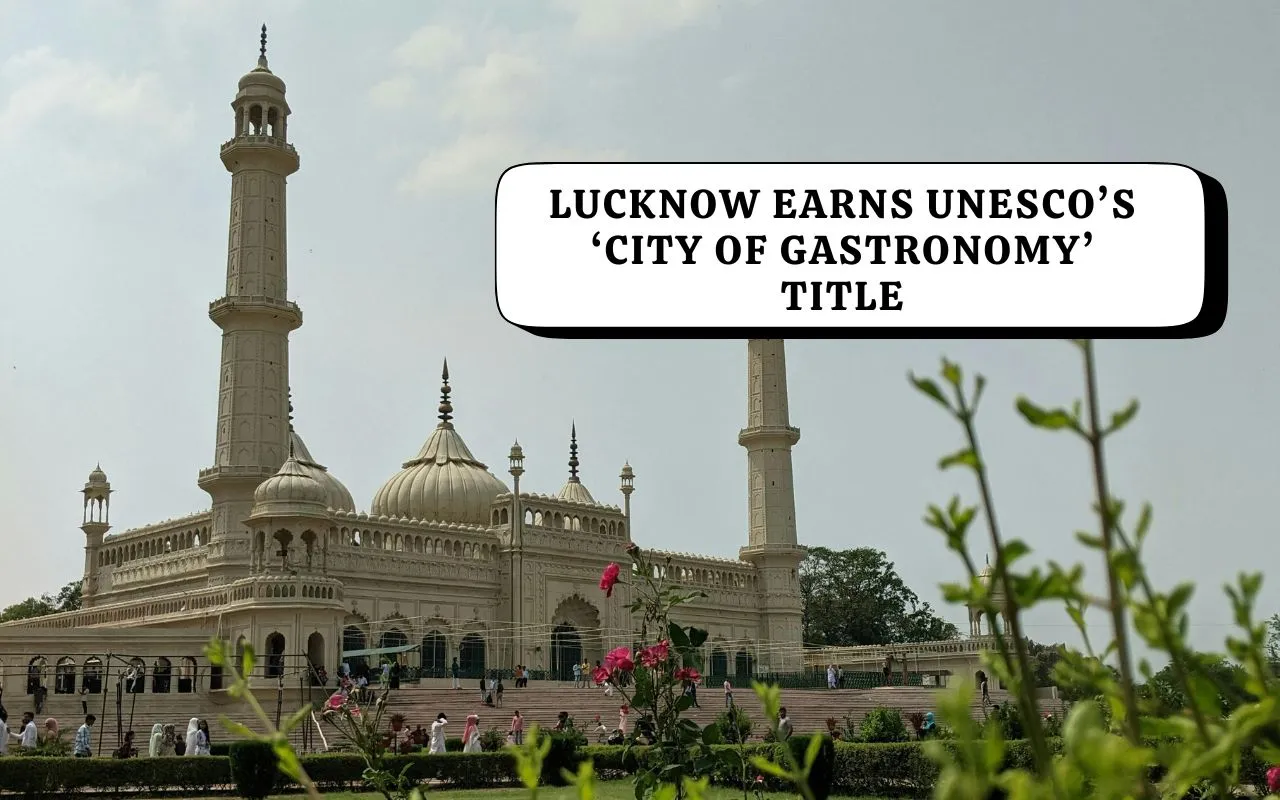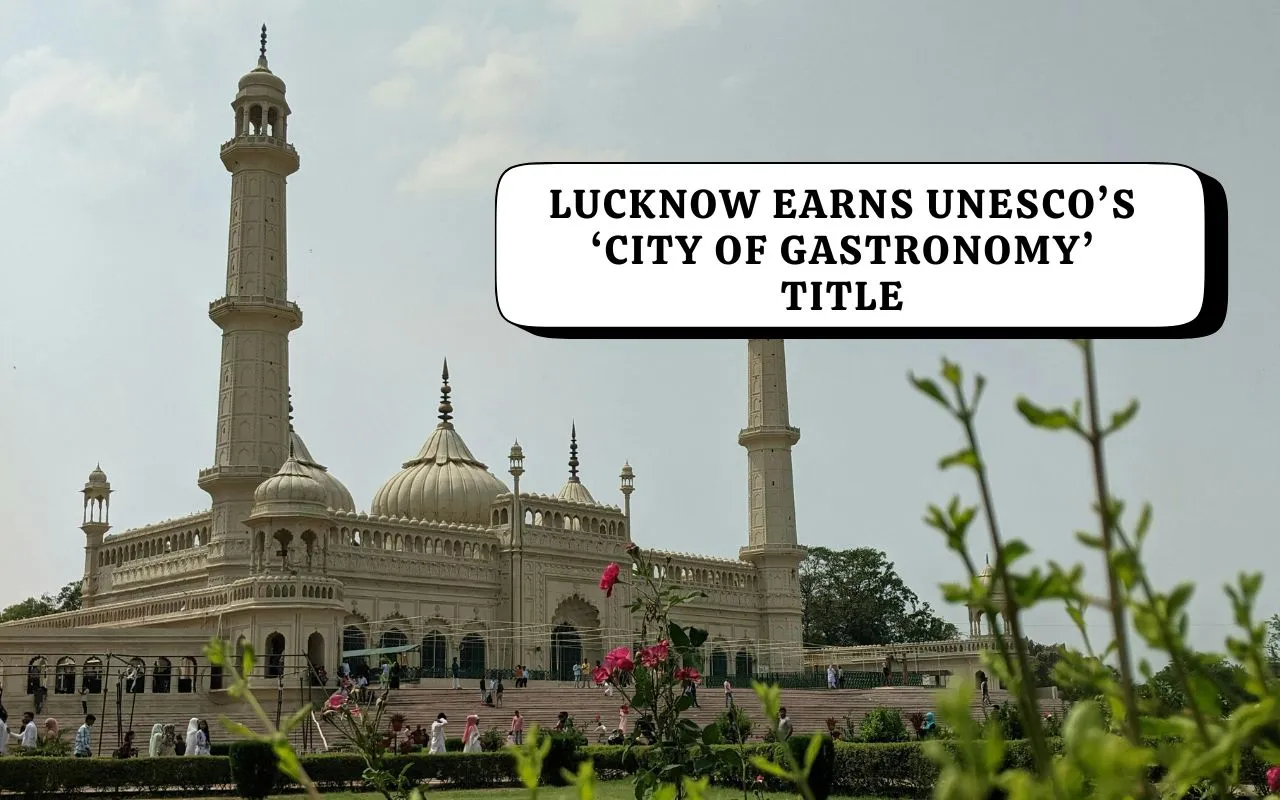

India, known for its incredible cultural and culinary diversity, tells its story through every flavor and dish. Among its many regions, one district in Uttar Pradesh has now drawn global attention for keeping India’s traditional food heritage alive. Honored by UNESCO for its outstanding contribution to world cuisine, this city has officially earned the prestigious title of ‘City of Gastronomy.’
What Does Gastronomy Mean?
“Gastronomy” refers to the art and science of good eating — not just what people eat, but how, where, and why they eat it. It connects food with culture, local ingredients, and customs, turning every meal into a reflection of identity and tradition. In essence, gastronomy celebrates taste, heritage, and the spirit of a place through its food.
Which City Received the Title?
The capital of Uttar Pradesh — Lucknow — has been recognized as the ‘City of Gastronomy’ by UNESCO under its Creative Cities Network. This acknowledgment honors Lucknow’s rich Awadhi cuisine, a legacy that dates back to the era of the Nawabs.
With this achievement, Lucknow becomes India’s second city to receive the distinction, following Hyderabad, which earned the same title in 2019.
Why Was Lucknow Chosen?
Lucknow’s global recognition stems from its centuries-old Awadhi food tradition, a cuisine defined by royal roots, refined flavors, and slow-cooking mastery. The city’s culture of Nawabi hospitality, elegant presentation, and devotion to authentic recipes continues to enchant food lovers even today.
Key reasons behind the recognition include:
• A rich Awadhi culinary legacy from the Nawabi era
• Distinctive cooking techniques like Dum Pukht (slow cooking)
• A unique blend of Hindu and Muslim influences — the Ganga-Jamuni Tehzeeb
• Worldwide appreciation of Lucknow’s cuisine across restaurants and festivals
Famous Dishes That Define Lucknow
Lucknow’s culinary identity is synonymous with royal indulgence and irresistible aroma. Some of its most celebrated dishes include:
• Tunday Kabab: Soft, spice-rich kebabs with a secret recipe
• Galouti Kabab: A melt-in-the-mouth delicacy originally made for the Nawabs
• Awadhi Biryani: Fragrant rice layered with spices and tender meat
• Sheermal: A sweet, saffron-infused flatbread
• Makhan Malai: A light, creamy winter dessert
Each dish reflects a story of craftsmanship, culture, and culinary evolution passed down through generations.
The Art of Dum Pukht
One of Lucknow’s most iconic cooking methods is Dum Pukht, where food is slow-cooked over a low flame in sealed pots to retain its aroma and flavor. This age-old technique gives dishes their signature richness, deep taste, and unmistakable fragrance — the true essence of Awadhi cuisine.
The Ganga-Jamuni Tehzeeb
At the heart of Lucknow’s gastronomy lies the Ganga-Jamuni Tehzeeb — a term that signifies harmony and cultural fusion. The city’s food is a beautiful mix of Hindu and Muslim culinary traditions, blending spices, techniques, and sensibilities to create dishes that symbolize unity in diversity.
Why the UNESCO Honor Matters
UNESCO’s recognition is more than a title; it’s a celebration of Lucknow’s cultural depth and culinary artistry. The ‘City of Gastronomy’ status is expected to:
• Boost tourism and attract food lovers from across the globe
• Inspire young chefs and local food entrepreneurs
• Preserve centuries-old Awadhi recipes and methods
• Strengthen India’s place on the world’s culinary map
